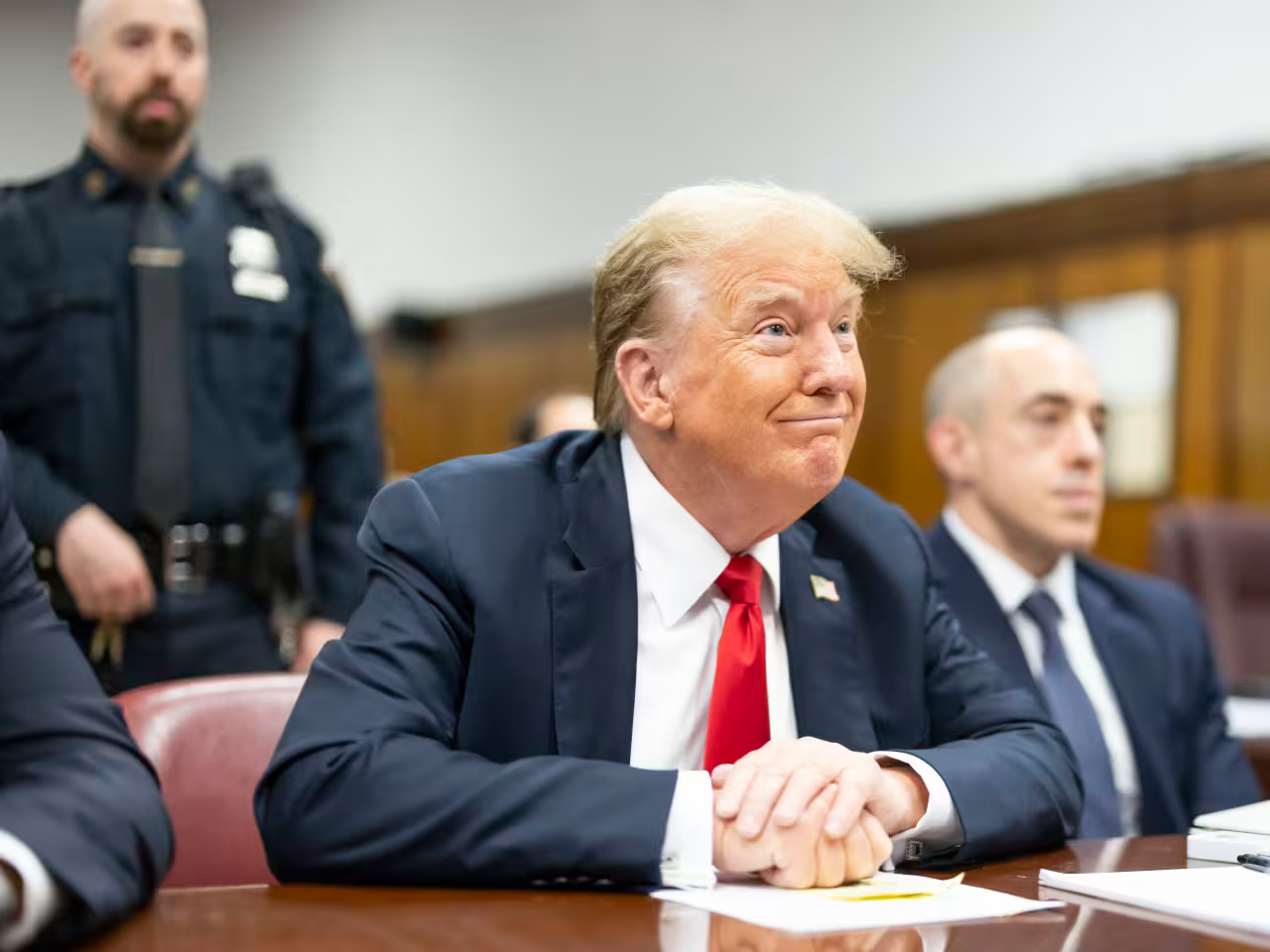Donald Trump’s historic hush-money trial neared its conclusion on Tuesday as the prosecution and defense delivered their closing arguments.
In the defense’s final address, Trump’s lead lawyer attacked Michael Cohen—Trump’s former fixer and the prosecution’s star witness—as the “greatest liar of all time.”
Prosecutors countered with a lengthy rebuttal, depicting Cohen as a flawed “tour guide” to a “mountain” of evidence against Trump.
The twelve jurors will soon decide if the former president, and presumptive Republican nominee for November’s election, is guilty beyond reasonable doubt of falsifying business records.
Over the past six weeks, Trump, 77, has listened to testimony about a hush-money payment made before the 2016 election to Stormy Daniels, a former adult-film star, to ensure her silence about an alleged sexual encounter.
Prosecutors with the Manhattan District Attorney’s Office allege Trump falsified business records on 34 counts when he reimbursed Cohen for the $130,000 (£102,000) payment, recording it as legal fees. They further claim he aimed to unlawfully influence the 2016 race.
On Tuesday, Trump’s lawyer Todd Blanche argued passionately that Trump had no intention of falsifying business records or committing election interference. He attacked Cohen’s credibility, calling him the “human embodiment of reasonable doubt.”
Blanche reminded jurors that Cohen had been jailed for lying under oath, had admitted to stealing from his former employer, and now held a grudge against Trump. “He’s literally like an MVP of liars,” he said.
Trump observed as his attorney criticized the case, occasionally closing his eyes.
The prosecution must convince jurors of Trump’s guilt beyond a reasonable doubt to secure a conviction.
Lead counsel for the prosecution, Joshua Steinglass, took nearly four hours for his closing argument, concluding around 20:00 local time at Justice Juan Merchan’s behest.
At its core, the case against Trump is about “a conspiracy and a cover-up,” Steinglass said.
Over five weeks, the prosecution presented witnesses to support documents and recordings related to the hush-money payment to Daniels and Cohen’s reimbursement.
Steinglass acknowledged issues with some witnesses, including “cringeworthy” testimony from Daniels and the significant “baggage” of their star witness. “The defendant chose Michael Cohen. To be his fixer!” he pointed out. “We didn’t pick him up at the witness store.”
Steinglass urged the jury to focus on the evidence Cohen guided them through, despite his flaws, noting that Cohen’s actions benefited “one person and one person only.” If jurors “ignore the sideshows,” they will find Trump guilty, he added.
Some legal experts suggest it will be challenging to convince jurors that Trump falsified business records to cover up another crime, influencing the 2016 election unlawfully. Others argue the prosecution may have taken too long to make its final points. “Lawyers love to talk, but less is more in a case like this,” former federal prosecutor Neama Rahmani told the BBC.
The panel of twelve New York jurors must unanimously agree to convict or acquit Trump. If they cannot agree on a verdict, the case will result in a mistrial.

